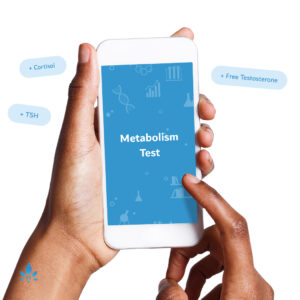What is Hashimoto’s Disease?


Hashimoto’s disease is an autoimmune disease in which a child’s own immune system attacks his or her thyroid gland. The disease interferes with the thyroid’s ability to produce thyroid hormones and often leads to reduced thyroid function, or hypothyroidism.
The thyroid gland has an important role in a child’s health. It produces hormones that affect metabolism, breathing, brain development, body temperature, heart, and nervous system functions, muscle strength, skin dryness, cholesterol levels, weight—even menstrual cycles in women. Hypothyroidism occurs when the thyroid doesn’t make enough thyroid hormone to meet the body’s needs, which slows many of the body’s functions.
Also called chronic lymphocytic thyroiditis or autoimmune thyroiditis, Hashimoto’s disease is the most common cause of hypothyroidism in the US.
This disease often causes no symptoms initially. One of the first signs a child has Hashimoto’s is often a goiter or visibly enlarged thyroid gland in the neck. The goiter may not have any other physical symptoms beyond a full feeling in the throat.
If Hashimoto’s develops into hypothyroidism, symptoms range from mild to severe. Some children complain of fatigue, have unexplained weight gain, are intolerant to cold, or have joint and muscle pain. Other symptoms include constipation, brittle or thinning hair, depression, a slowed heart rate, slowed speech, eyebrow thinning, a hoarse voice, or dull facial expression.
While Hashimoto’s disease is more common in adults, it does occur in adolescents and pre-adolescents. It’s more common among females than males. The cause of Hashimoto’s disease hasn’t been confirmed, but studies suggest lifestyle and environmental factors could impact risk. Consuming too much iodine and exposure to pesticides are potentially associated with the disease. Children with other autoimmune diseases, including type 1 diabetes, might be at elevated risk for Hashimoto’s disease.
Pediatricians diagnose Hashimoto’s disease with a physical exam (looking and feeling for goiters, nodules, or growths around the thyroid) and medical history. Blood tests looking at thyroid hormone activity are an important part of the diagnosis. And imaging tests, such as ultrasound, might help to confirm the diagnosis.
Treatment ranges from a wait-and-see approach to prescribing a synthetic thyroid hormone to control symptoms. Children with Hashimoto’s disease and hypothyroidism should watch their intake of iodine, which is found in foods such as seaweed and kelp, as well as iodine-enriched table salt.
It’s important to monitor and treat the disease because hypothyroidism can affect a child’s growth, appearance, and intelligence. Hypothyroidism can also lead to long-term health issues, including heart disease and depression.
Sources:
- National Endocrine and Metabolic Diseases Information Service (NEMDIS)
- Hashimoto’s Disease.
The Children’s Hospital of Philadelphia - Pediatric Thyroid Center.
Mayo Clinic - Hashimoto’s disease.
Powered by Bundoo®













































